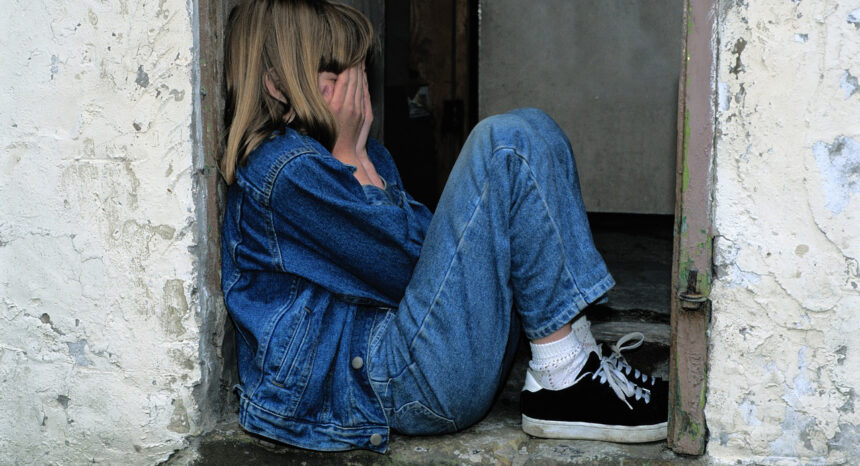The issue: When children in the United States are abused or neglected, government agencies sometimes remove them from their homes and place them in foster care with the goal of providing a safer, more stable environment. In late 2015, an estimated 427,910 kids were in foster care nationwide, according to a 2017 report from the U.S. Department of Health and Human Services. Researchers have estimated that 6 percent of all U.S. children will enter foster care before age 18, including 12 percent of black children and 15 percent of Native American children.
Previous research has looked at the mental and physical health of foster care children. A 2016 study published in Pediatrics, for example, found that children placed in foster care were three to five times more likely to suffer mental health problems such as depression and attention deficit disorder than children who were never in foster care.
A new study examines the life experiences of children who are placed in foster care.
An academic study worth reading: “Adverse Childhood Experiences among Children Placed in and Adopted from Foster Care: Evidence from a Nationally Representative Survey,” published in the journal Child Abuse & Neglect, 2017.
Study summary: Kristin Turney, a sociology professor at the University of California, Irvine, and Christopher Wildeman, a professor of policy analysis and management at Cornell University, sought to fill a gap in research about the life experiences of foster care children. They wanted to know how the life experiences of these kids compare to two other groups of potentially vulnerable children — those from low-income households and those raised by single mothers.
Turney and Wildeman examined data collected through the 2011–2012 National Survey of Children’s Health, a nationally representative survey of 95,677 U.S. children. The authors used the data to estimate how many children had suffered at least one of seven types of adverse experiences: the death of a parent, parental incarceration, parental abuse, parental divorce or separation, exposure to violence, household substance abuse and household mental illness.
Some key findings:
- Of the seven adverse experiences, parental divorce or separation was most common among all children in the study. About 20 percent of children had divorced or separated parents. The second most common was household member substance abuse. About 11 percent of all children in the study had ever lived with someone with a drug or alcohol problem.
- Children who had spent time in foster care were much more likely to have had one of the seven adverse experiences. For example, 40.1 percent of children placed in foster care had a parent who had been incarcerated, compared to 6.4 percent of all children. Almost 12 percent of kids who had been in foster care had a deceased parent compared to 2.8 percent of all children. More than 34 percent of children placed in foster care and 7 percent of all children had ever observed one of their parents abusing the other, or an adult in their home hitting or kicking another adult.
- Children who had been placed in foster care were more likely than low-income children to have these adverse experiences.
- Children placed in foster care had a greater likelihood of having endured most of the seven adverse experiences than children who grew up in single-mother households. About half of children raised by single mothers had parents who were divorced or separated.
- “This suggests that children in foster care are uniquely disadvantaged relative to a host of other types of children, including children who have an elevated risk of ACEs [adverse childhood experiences] such as children in poverty or children living with single mothers.”
Other resources:
- A 2017 fact sheet from the Child Welfare Information Gateway, part of the U.S. Department of Health and Human Services, provides the most recent statistics on children in foster care. During fiscal year 2015, 269,509 kids entered foster care. More than half remained in foster care for a year or longer.
- The U.S. Department of Health and Human Services publishes regular reports on foster children such as this detailed Report to Congress, which looks at how individual states respond to child abuse.
- Elizabeth Bartholet, a professor at Harvard Law School, has won awards for her writing and advocacy work in the areas of child welfare and adoption.
- The Annie E. Casey Foundation is an advocacy organization that focuses on children and families.
Related research:
- A 2015 study published in JAMA Pediatrics, “Effect of Early Institutionalization and Foster Care on Long-term White Matter Development: A Randomized Clinical Trial,” suggests that severe neglect early in life can hurt children’s brain development. But early interventions – for example, placing a neglected child in a high-quality home environment — might help “remediate” the damage.
- A 2013 study in the American Journal of Public Health, “Homelessness During the Transition From Foster Care to Adulthood,” suggests that foster care children are at a high risk of becoming homeless when they turn 18 and can no longer remain in the foster care program.
- A 2013 study in the journal Child Maltreatment, “The Prevalence of Child Sexual Abuse in Out-of-Home Care: A Comparison Between Abuse in Residential and in Foster Care,” finds that children living in residential facilities such as group homes are at a higher risk for sexual abuse than children in foster care.


Expert Commentary